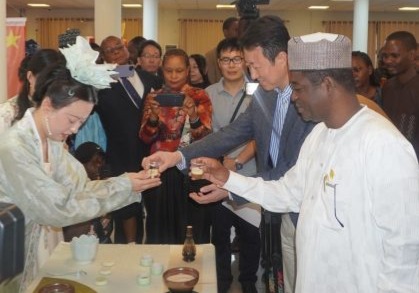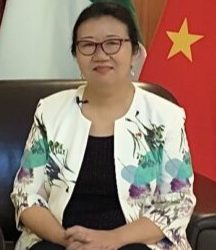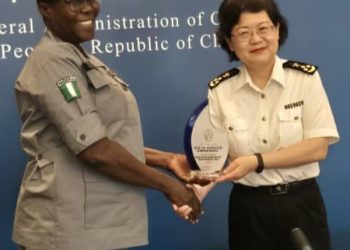By Anthony Nwachukwu
Towards deepening the cultural and people-to-people ties between China and Nigeria, the Chinese Embassy in Nigeria hosted the 2025 “Tea for Harmony-Yaji Cultural Salon”.
Guests at the China Cultural Centre-venue of the event in Abuja were treated to a variety of Chinese teas from Jiangnan Province as part of the experience.
Addressing the audience, Chinese Ambassador to Nigeria, Yu Dunhai, said that Chinese tea symbolises harmony, tranquility and elegance, adding that these resonate deeply with Nigeria’s cultural values of unity, and serve as a spiritual bridge between both nations.
Dunhai explained that tea has become significant in promoting economic, trade cooperation and cultural exchange between Nigeria and China, even as he indicated his government’s desire to partner Nigeria in advancing both nations’ tea economy.
According to him, “in recent years, China-Nigeria tea trade has flourished, with Hainan Baisha Tea making its debut in the Nigerian market in 2024, marking a new chapter in our tea industry cooperation.
Similarly, the Permanent Secretary, Federal Ministry of Arts, Culture and the Creative Economy, Dr. Muhktar Yawale, described tea as a global symbol of harmony, respect and cultural exchange.
Echoing the Chinese envoy, Yawale noted that “for thousands of years, Chinese tea has embodied the philosophy of harmony, respect, purity and tranquility,” adding that these align with Nigeria’s values of communality and shared heritage.
He stated the ministry’s commitment to promoting creative enterprises around tea, supporting tea-related festivals and exploring partnerships that enhance Nigeria’s participation in the global tea economy. He added that Nigeria’s tea market is expanding, thereby providing “opportunities for agro-processing, creative branding and cultural tourism.”
On its part, “the ministry is dedicated to supporting initiatives that infuse traditional practices with modern innovation, establishing cultural hubs that foster skills-exchange in agro-industry and beverage craftsmanship, and strengthening bilateral partnerships that elevate Nigeria’s creative economy,” Yawale said.
Chairman of the House of Representatives Committee on Culture and the Creative Economy, Gabriel Zock, had earlier assured that the legislature would enact policies that promote cultural exchange with China and other nations.
Tea, which originated in China some 5,000 years ago, is now produced in over 60 countries and enjoyed by over two billion people across the globe.
































